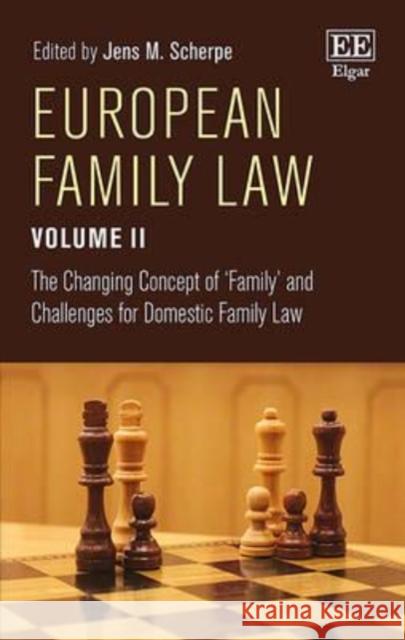European Family Law: Volume II: The Changing Concept of 'Family' and Challenges for Domestic Family Law » książka
European Family Law: Volume II: The Changing Concept of 'Family' and Challenges for Domestic Family Law
ISBN-13: 9781785363023 / Angielski / Twarda / 2016 / 416 str.
European Family Law: Volume II: The Changing Concept of 'Family' and Challenges for Domestic Family Law
ISBN-13: 9781785363023 / Angielski / Twarda / 2016 / 416 str.
(netto: 716,51 VAT: 5%)
Najniższa cena z 30 dni: 699,93 zł
ok. 22 dni roboczych.
Darmowa dostawa!
This four-volume set maps the emerging European family law. It is intended to serve as a resource for anyone interested in this area of law, as well as a basis for teaching on comparative and international family law courses. The first volume examines the impact of institutions and organisations on European family law. While there is no European body that could actually legislate definitively on family law, there are some institutions that have a direct impact on European family law, while the impact of others is more indirect. In the second volume the changing concept of 'family' and challenges for domestic family law are analysed in 21 different jurisdictions, in 16 chapters. All contributions look at 'horizontal' family law (the law concerning the relationships between adults), 'vertical' family law (the law concerning the relationships of adults and children) as well an 'individual' family law (the law on names and gender identity). In the third volume the contributions take a comparative view on specific issues from a European perspective. The fourth volume, which works as a stand-alone monograph, draws on all of the previous chapters, and discusses the present and future of European family law. It establishes areas where 'institutional' European family law exists - in the sense that there are binding legal rules for all European jurisdictions - for example, as a result of a decision by the European Court of Human Rights. It also identifies areas where, as a result of common legal and social developments for 'horizontal', 'vertical' and 'individual' family law, an 'organic' European family law is emerging and suggests how family laws in Europe are going to develop in the future.











